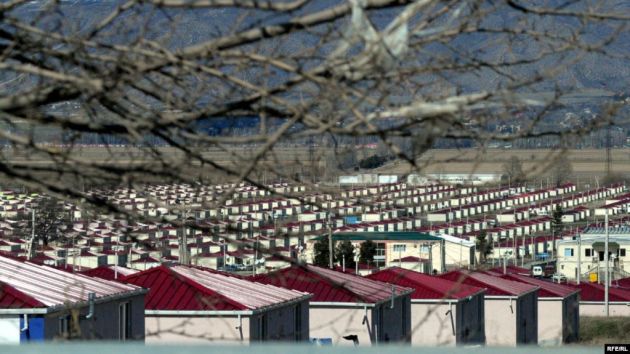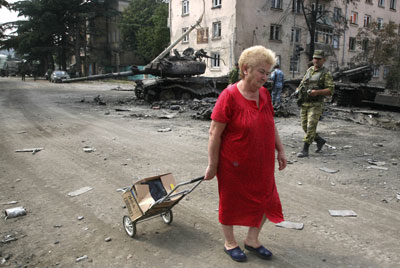Help for family of victims of 2008 Russia-Georgia war
Fundraising campaign by
Giorgi Bakashvili
-
US$0.00Donated So Far
Campaign Story
In the months leading up to the August 2008 armed conflict, both the Georgian and the South Ossetian de facto authorities sides built up forces in their respective areas of control, while armed clashes between them increased. Tensions heightened in South Ossetia on 3 July 2008, when an Ossetian village police chief was killed and the head of the pro-Georgian “government” in South Ossetia, Dmitriy Sanakoyev, had a narrow escape from a roadside mine. That night, both the Georgians and South Ossetians launched artillery attacks on each other’s villages and checkpoints, purportedly resulting in about a dozen killed or wounded. War eventually broke out on the night of 7 to 8 August 2008 when Georgia launched an intensive air and ground assault attack on South Ossetia’s main city, Tskhinvali, while Russian armed forces, covered by air strikes and by elements of its Black Sea fleet, penetrated deep into Georgia, cutting across the country’s main east-west road, reaching the port of Poti and stopping short of Georgia’s capital city, Tbilisi13. On 11 August 2008, Russia bombed apartment buildings in the city of Gori — within Georgian controlled territory — and occupied the city. From 15 August 2008 onwards, Russian troops began to withdraw from undisputed Georgian territory but created a 20km wide “buffer zone” within parts of Georgian territory beyond the boundary of the South Ossetian administrative zone. On 16 August 2008, French President Nicolas Sarkozy on behalf of the European Union (EU) and Russian President Dmitriy Medvedev negotiated and signed a ceasefire accord, and later in September drew out the provisions of the 6-point peace plan, specifying: • Russian forces would withdraw from areas adjacent to the borders of Abkhazia and South Ossetia by midnight on 10 October 2008; • Georgian forces would return to their barracks by 1 October 2008; • International observers already in place from the United Nations (UN) and the Organization for Security and Cooperation in Europe (OSCE) would remain; and • The number of international observers would be increased by 1 October 2008, to include at least 200 EU observers. Russia recognised Abkhazia and South Ossetia as separate republics on 26 August 2008.14 In September 2008 Russia signed Friendship, Cooperation, and Mutual Assistance agreements with Abkhazia and South Ossetia making the regions dependent on Russia.The agreements also allow Russian border troops to help defend the regional borders, provide for free entry into Russia by residents of the regions, and allow Russian embassies to protect the interests of the residents of the regions when they travel abroad.
Paypal: [email protected]
Merchant ID FUL2TYGDKY99Y
Organizer
- Giorgi Bakashvili
- Campaign Owner
No updates for this campaign just yet
Followers
Support Campaigns
Create a support campaign in seconds!
Support campaigns allow you to get your own fundraising page dedicated to 'Help for family of victims of 2008 Russia-Georgia war'
You'll have your own unique link that you can share, and all funds raised will go directly to 'Help for family of victims of 2008 Russia-Georgia war'. It's the ultimate way to show your support!
Create support campaign



